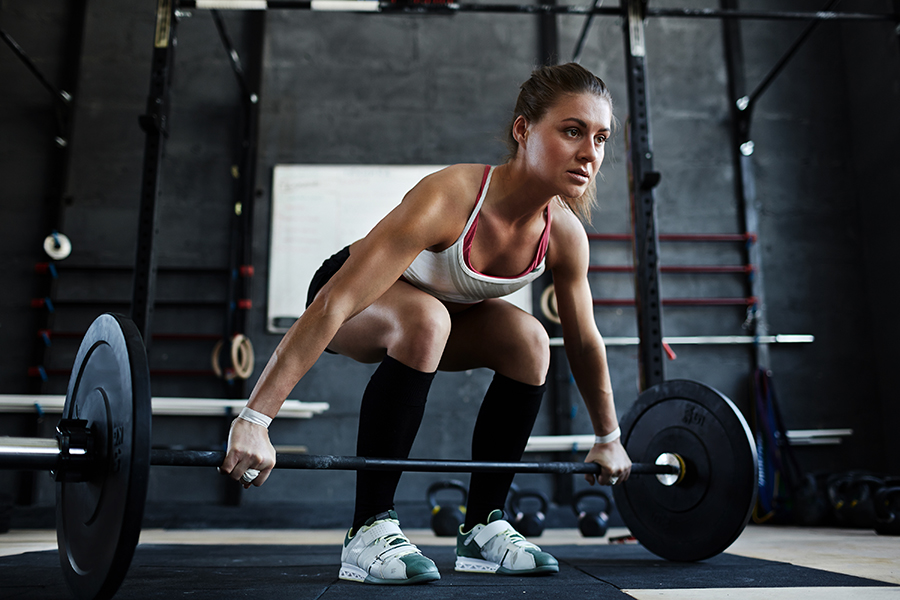The pandemic has had a significant impact on the way we all operate. For sport, events have been postponed or canceled; athletes have been unable to compete, and revenue has been lost. Sport usually brings people, cultures, and businesses together, but our industry has been put on hold for much of the past year.
Yet, in many ways, Covid-19 has helped us embrace new ways of working and give us time to reflect and re-evaluate our own practices. We all need alternative perspectives in life to help us look at challenges differently and reassess how we can overcome them.
Innovation is key for any business that wants to thrive and improve, especially during such extraordinary circumstances. Over the past year, the sports industry has benefited from the innovative ways it has been able to maintain athlete participation levels at both elite and grassroots levels and engagement with fans and sponsors.
At USA Weightlifting (USAW), the ramifications of the pandemic have been felt across our entire organization. Athletes have been forced to adapt to lockdown rules, traveling restrictions, and social distancing laws in order to prepare for the biggest event in our calendar, the 2020 Olympic Games in Tokyo.
The pandemic and its consequences have taught us some lessons about our sports governance as well. We have become more transparent and agile. In these times of uncertainty, our staff and athletes and their entourage have rightly looked to their leadership teams for support, guidance, and to take decisive action. Being transparent has built even greater levels of trust.
Our success results from effective management and teamwork, which has taken on even greater significance over the past year.
A key learning from the pandemic has been that empathic leadership and effective communication are essential to achieving success for any business. I am extremely proud of the creative and collective approach that weightlifters from across the world, including those from across my own federation, have shown during this period.
In times of crisis, we, as leaders, must put the needs of the business above our own personal priorities. It is my responsibility to support these athletes to the best of my ability.
As CEO of USAW, I immediately cut my salary by 100% when the pandemic struck last year and launched a Covid-19 relief fund to help our members.
We have had to be prepared to take calculated risks to protect our organization’s long-term future. We have encouraged our athletes, for instance, to train in home gyms and garages, and created a program of remote sessions to replace long-distance training camps.
Despite the uncertainty, the launch of these online competitions for weightlifters at all levels has helped our sport reach new audiences and ensure that athletes can continue to participate.
Boosted by the continued support of our existing sponsors, we have been able to use our wider network to find creative ways to generate much-needed revenue. We have also been able to reduce costs by moving our live events and coaching sessions online.
We have also found ways of generating revenue with new sponsors, such as a highly successful fundraising campaign in partnership with Snap! Raise, the nation’s leading provider of fundraising to high school youth groups and teams. The campaign helped to provide money to the myriad of local clubs that are the lifeblood of our sport. These funds ensured that they are able to keep their facilities open and keep the sport of weightlifting thriving around the nation.
Despite the financial challenges presented by the pandemic for many organizations, USAW delivered a record surplus of almost $1 million in 2020, and we are now in a fantastic position to achieve our goals in Tokyo as a result.
We have become more inclusive and diverse, bringing more individuals from black and ethnic minority backgrounds into weightlifting, with our female representation extending to more than 50% of USAW membership.
Tokyo will be unlike many previous editions of the Olympic Games, with limitations on fans, family, and friends, and the wider entourage that we would normally expect to support athletes during the biggest competition of their lives.
It is up to my team and me to ensure our athletes receive the best possible support as they prepare. We want to do everything we can to give them the best experience possible while representing their country.
That’s why we have recently announced an innovative training hub in Hawaii for our athletes to train before they fly to Tokyo, where they will be supported in the best possible way as they prepare. Friends and family, medical and coaching experts, our own team, and future athletes will attend to create the closest possible experience to the Games as we can create. We believe that that will give our team the best conditions to compete at their optimum for what will certainly be a very different Olympic Games.
Ultimately, a person’s mental wellness, whether they are an athlete, leader, or an employee, is an exceptionally significant indicator of how well they will function in their role.
Throughout this period, sport has overcome many challenges and given communities hope in times of uncertainty. We need more innovation in sport to drive better solutions for crisis management and improvements in leadership.




































